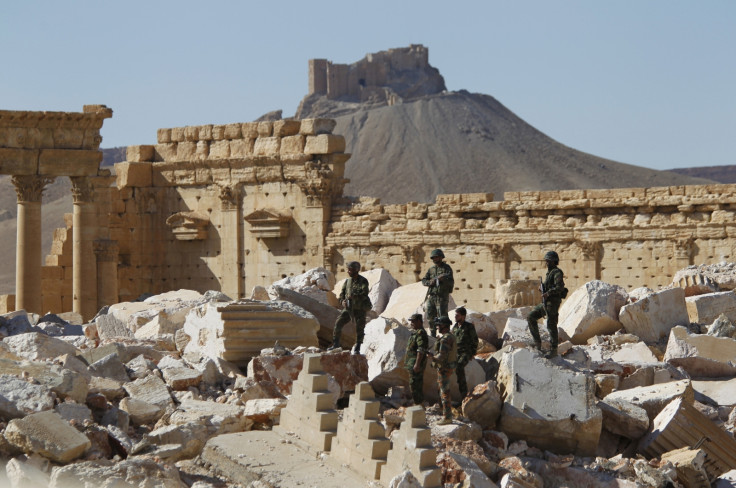Pro-Assad forces retake Palmyra for second time discover ancient city rigged with explosives
Government troops supported by militias recaptured Palmyra on 2 March.
Forces supporting the Damascus government of Bashar al-Assad have retaken the ancient ruins of Palmyra, the third time the city has changed hands in a year, to find it rigged with explosives
and mines.
Government troops supported by militias recaptured Palmyra on Thursday (2 March) in an offensive that saw the extremists' lines melt away in the face of artillery bombardment and Russian airstrikes.
Syrian troops have now begun the lengthy process of removing the Islamic State booby traps. The militant group regularly leaves improvised explosive devices and mines in the wake of its retreat as it operates a scorched earth policy.
In 2016 it took Russian demining experts weeks to clear the town from hundreds of mines planted by IS.
On 20 January observers reported the Islamic State (Isis/Daesh) has beheaded 12 people in Palmyra, including teachers, in killings reminiscent of the May 2015 mass executions of 25 soldiers in the ancient Syrian city.
Palmyra, with its iconic 2,000-year-old ruins, has become one of most potent symbols for the ebb and flow of power in Syria's six-year civil war.
In May 2016 Russia put on a concert at the Roman ruins at Palmyra as a symbol of its victory against IS. The concert followed the Kremlin announcing a full-scale withdrawal from the country, saying all Russia's goals had been met.

Despite Russia's stated intention to withdraw, Moscow continued as the principal backer of the Assad regime along with Iran and the Lebanese Shia Hezbollah militia.
As they re-entered Palmyra last December, the militants seized Russian arms including 30 tanks, large quantities of surface-to-surface Grad missiles, ammunition and tanks shells.
Russia claimed IS was able to overrun Syrian government forces with reinforcements from Mosul. Footage released by IS at the time showed its forces standing next to abandoned Russian tanks and armoured personnel carriers at security checkpoints.
© Copyright IBTimes 2025. All rights reserved.






















